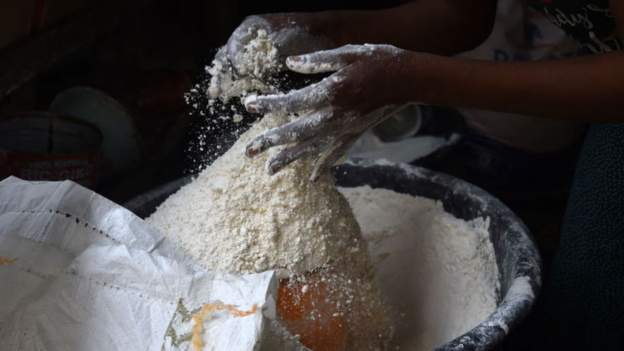
The International Monetary Fund (IMF) has warned of a looming food crisis that may spark social unrest in sub-Saharan Africa.
The fund has revised its growth projection for the continent downwards to 3.8 per cent from the initial 4.5 per cent.
In its latest economic outlook, the IMF said the war in Ukraine had caused “a sharp increase in energy and food prices that could undermine food security in the region, raise poverty rates, increase income inequality and possibly lead to social unrest”.
Its report said the war had stalled growth momentum seen in the second half of 2021 as countries continued to battle the effects of the Covid-19 pandemic, deteriorating security in several countries and climate-related shocks.
The IMF suggested that sustainable growth would require economic diversification for commodity-exporting countries, the boosting of private sector growth through regional trade integration and the addressing of climate-change challenges.
The war in Ukraine was set to cause the “largest commodity shock” since the 1970s, the World Bank had warned.
In a new forecast, it said disruption caused by the conflict would contribute to the huge rise in prices for goods ranging from natural gas to wheat and cotton.
The increase in prices “is starting to have very large economic and humanitarian effects”, Peter Nagle, a co-author of the report, told the BBC.
He said “households across the world are feeling the cost of living crisis”.
“We’re particularly worried about the poorest households since they spend a larger share of income on food and energy, so they’re particularly vulnerable to this price spike,” the senior economist at the World Bank added.
Energy prices were set to increase more than 50 per cent, pushing up bills for households and businesses, the World Bank said.
The biggest rise would be in the price of natural gas in Europe, which was set to more than double in cost. Prices were forecast to fall next year and in 2024, but even then would remain 15 per cent higher than they were last year.
The World Bank said this meant that from the lows of April 2020 until the highs of March this year we have seen “the largest 23-month increase in energy prices since the 1973 oil price hike”, when tensions in the Middle East sent prices soaring. -BBC




